 W
WYakov Saulovich Agranov was the first chief of Soviet Main Directorate of State Security and a deputy of NKVD chief Genrikh Yagoda. He is known as one of main organizers of Soviet political repressions and Stalinist show trials in 1920s and 1930s. He fabricated the "Tagantsev conspiracy" case and Moscow trials, including Trial of the Twenty One and Industrial Party Trial, as well as mass arrests and executions in Saint Petersburg during Stalin's Great Purge.
 W
WIbniyamin Abusugutovich Akhtyamov was a lawyer and a deputy of the Fourth Imperial Duma from the Ufa Governorate between 1912 and 1917. He was a chairperson of the All-Russian Congress of Representatives of Muslim Public Organizations, held in Petrograd. In December 1916, he was a lawyer at the trial of the participants in the Central Asian insurrection. After the start of the Russian Civil War, he took part in the Committee of Members of the Constituent Assembly. In Soviet era, he was arrested in 1938 and died in 1941. His brother was a menshevik, Ibrahim Akhtyamov (1880—1931).
 W
WNikolai Feodorovich Annensky was a Russian economist, statistician and politician. He was a member of the populist (narodnik) movement and the Socialist-Revolutionary Party before becoming one of the founders of the Russian Popular Socialist Party (NSP) in 1906.
 W
WShloyme Zanvl Rappoport, known by his pseudonym S. Ansky, was a Jewish author, playwright, researcher of Jewish folklore, polemicist, and cultural and political activist. He is best known for his play The Dybbuk or Between Two Worlds, written in 1914.
 W
WAleksandr Stepanovich Antonov was a Russian revolutionary, member of the Socialist Revolutionary Party, and one of the leaders of the Tambov Rebellion against the Bolshevik regime.
 W
WAndrei Aleksandrovich Argunov was a Russian revolutionary political activist and one of the leaders of the Socialist-Revolutionary Party.
 W
WNikolai Dimitrovich Avksentiev was a leading member of the Russian Socialist-Revolutionary Party (PSR). He was one of the 'Heidelberg SRs', like Vladimir Zenzinov. These SRs were influenced by neo-Kantian philosophy and Marxism. As Chairman of the Provisional All-Russian Government, he headed Russian state from September 23 to November 18, 1918. He was overthrown and arrested by the Minister of War, Alexander Kolchak, who proclaimed himself the Supreme ruler of Russia.
 W
WYevno Fishelevich Azef, a Russian socialist revolutionary, also operated as a double agent and agent provocateur, working both as an organizer of assassinations for the Socialist-Revolutionary Party and as a police spy for the Okhrana, the Imperial secret police. He rose through the ranks to become the leader of the Socialist-Revolutionary Party's terrorist branch, the SR Combat Organization, from 1904 to 1908.
 W
WAlexei Nikolaevich Bach was a Soviet biochemist and revolutionary. He was a member of the Academy of Sciences of the USSR and senior member of the Supreme Soviet.
 W
WPavel Petrovich Bazhov was a Russian writer.
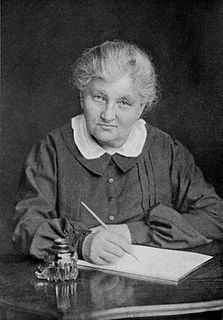 W
WCatherine Breshkovsky. A major figure in the Russian socialist movement, a Narodnik and later one of the founders of the Socialist Revolutionary Party. She has been described as Russia's first female political prisoner. She spent over four decades in prison and Siberian exile for peaceful opposition to Tsarism, acquiring, in her latter years, international stature as a political prisoner. Also popularly known as Babushka, Breshkovsky was the grandmother of the Russian Revolution.
 W
WIon Alion Buzdugan was a Bessarabian-Romanian poet, folklorist, and politician. A young schoolteacher in the Russian Empire by 1908, he wrote poetry and collected folklore emphasizing Bessarabia's links with Romania, and associated with various founding figures of the Romanian nationalist movement, beginning with Ion Pelivan. Buzdugan was a far-left figure during the February Revolution, but eventually rallied with the National Moldavian Party in opposition to the socialists and the Bolsheviks. He vehemently supported the union of Bessarabia with Romania during the existence of an independent Moldavian Democratic Republic, and, as a member of its legislature, worked to bring it about. Threatened by the Bolsheviks, he fled to Romania and returned with the expeditionary corps headed by General Ernest Broșteanu, being one of the delegates who voted for the union, and one of dignitaries who signed its proclamation.
 W
WPrince Varlam Cherkezishvili was a Georgian politician and journalist, involved in anarchist communist movement, and later in the Georgian national liberation movement. He was also known as Warlaam Tcherkesoff or Varlam Cherkezov in Russian manner.
 W
WViktor Mikhailovich Chernov was a Russian revolutionary and one of the founders of the Russian Socialist-Revolutionary Party. He was the primary party theoretician or the 'brain' of the party, and was more analyst than political leader. Following the February Revolution of 1917, Chernov was Minister for Agriculture in the Russian Provisional Government and advocating immediate land reform. Later on, he was Chairman of the Russian Constituent Assembly.
 W
WDaniel Ciugureanu was a Romanian politician from Bessarabia, deputy in Sfatul Țării from Chisinau, Prime minister of the Moldavian Democratic Republic from January 29 [O.S. January 16] 1918 - April 21 [O.S. April 8] 1918, Minister for Bessarabia in four Romanian Governments, Deputy and Senator, Vice-President of the Chamber of Deputies, Vice-President and President of the Senate of Kingdom of Romania.
 W
WSergey Yakovlevich Elpatyevsky, November 3, 1854 – January 9, 1933, was a Russian writer and doctor.
 W
WLidija Nikolaevna Figner (1853-1920), was a Russian revolutionary and a prominent member of the Narodniks. She was the sister of Vera Figner.
 W
WVera Nikolayevna Figner Filippova was a revolutionary political activist born in Kazan Governorate, Russian Empire, into a noble family of ethnic German and Russian descent.
 W
WIlya Isidorovich Fondaminsky, was a Russian author and political activist, in 1910s one of the leaders of the Esers party, in 1917 a senior member of the Alexander Kerensky's Provisional government.
 W
WFyodor Andrianovich Funtikov was Chairman of Provisional Executive Committee of the Transcaspian Region Soviet during the period July 1918 – Jan 1919. He was a Socialist Revolutionary railway worker, who in his role as head of the Transcaspian Government was held responsible for the execution of the 26 Baku Commissars.
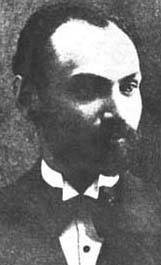 W
WGrigory Andreyevich Gershuni was a Lithuanian-Jewish revolutionary and one of the founders of the Socialist-Revolutionary Party.
 W
WAbram Rafailovich Gots was a Russian Socialist-Revolutionary leader, active in the Revolutions of 1905 and 1917.
 W
WMikhail Rafailovich Gots (1866–1906) was a Russian revolutionary, member of 'The People's Will' and one of the founders of the Socialist-Revolutionary Party (PSR). He was the older brother of Avram Gots.
 W
WAleksandr Stepanovich Grinevsky was a Russian writer, notable for his romantic novels and short stories, mostly set in an unnamed fantasy land with a European or Latin American flavor. Most of his writings deal with sea, adventures, and love.
 W
WIon C. Inculeț was a Bessarabian and Romanian politician, the President of the Country Council of the Moldavian Democratic Republic, Minister, full member of the Romanian Academy. He was buried in the Church of St. Ioan Botezătorul of Bârnova, located on the outskirts of Iași. He was married to Princess Roxana Cantacuzino. His children from this marriage were Ion I. Inculeț, Doctor Honoris Causa of the University of Western Ontario (Canada), NASA consultant, Honorary Member of the Romanian Academy, director of the Center of Applied Electrostatics of the University of Western Ontario, and his brother, George I. Inculeț.
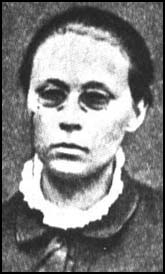 W
WPraskovya Ivanovskaya was a Russian revolutionary, was a member of both the Narodnaya Volya and Socialist-Revolutionary Party.
 W
WIvan Platonovich Kalyayev was a Russian poet, a member of the Socialist-Revolutionary Party. He is best known for his role in the assassination of Grand Duke Sergei Alexandrovich, which was an operation of the SR Combat Organization. Arrested at the scene, Kalyayev was convicted of murder and hanged.
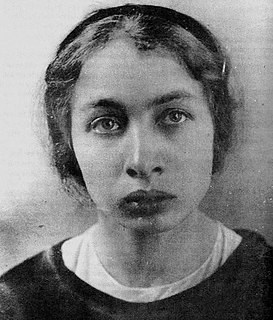 W
WFanny Efimovna Kaplan was a Russian-Jewish woman, Socialist-Revolutionary, and early Soviet dissident who was convicted of attempting to assassinate Vladimir Lenin and executed by the Cheka in 1918.
 W
WAlexander Fyodorovich Kerensky was a Russian lawyer and revolutionary who was a key political figure in the Russian Revolution of 1917. After the February Revolution of 1917, he joined the newly formed Russian Provisional Government, first as Minister of Justice, then as Minister of War, and after July as the government's second Minister-Chairman. A leader of the moderate-socialist Trudovik faction of the Socialist Revolutionary Party, he was also vice-chairman of the powerful Petrograd Soviet. On 7 November, his government was overthrown by the Lenin-led Bolsheviks in the October Revolution. He spent the remainder of his life in exile, in Paris and New York City, and worked for the Hoover Institution.
 W
WPrince Dmitry Aleksandrovich Khilkoff (1858–1914) went from being an officer in the Czar's Army to a Tolstoyan preaching Pacifism to a Socialist Revolutionary.
 W
WNikolai Dmitriyevich Kondratiev was a Soviet economist and proponent of the New Economic Policy (NEP) best known for the business cycle theory known as Kondratiev waves.
 W
WYelizaveta Nikolayevna Kovalskaya was a Russian revolutionary, narodnik, and founding member of Black Repartition.
 W
WIvan Aleksandrovich Lebedev was a son of an orthodox priest, a member of the Socialist Revolutionary Party, a justice of the peace, and a deputy of the Second Duma of the Russian Empire from the Arkhangelsk Governorate (1907); some sources state that he became a member of the Trudoviks.
 W
WVsevolod Vladimirovich Lebedintsev was a Russian astronomer and revolutionary. He is primarily known today for his participation in a failed plot in 1908 to assassinate Ivan Shcheglovitov, the Russian Minister of Justice, for which he was tried and executed. He was the inspiration behind the character Werner in Leonid Andreyev's short story "The Seven Who Were Hanged".
 W
WOsip Solomonovich Minor was a Russian revolutionary and member of the Socialist-Revolutionary Party.
 W
WAlexis Nour was a Bessarabian-born Romanian journalist, activist and essayist, known for his advocacy of Romanian-Bessarabian union and his critique of the Russian Empire, but also for controversial political dealings. Oscillating between socialism and Russian nationalism, he was noted as founder of Viața Basarabiei gazette. Eventually affiliated with Romania's left-wing form of cultural nationalism, or Poporanism, Nour was a long-term correspondent of the Poporanist review Viața Românească. Publicizing his conflict with the Russian authorities, he settled in the Kingdom of Romania, where he openly rallied with the Viața Românească group.
 W
WAlexey Vasilyevich Peshekhonov was a Russian economist, publicist, and statistician. He was a member of the Russian provisional government as a minister of food supplies for some months in the summer of 1917.
 W
WYekaterina Pavlovna Peshkova, née Volzhina was a Soviet human rights activist and humanitarian, first wife of Maxim Gorky.
 W
WAlexander Iliych Pogrebetsky (1891–1952) was a Russian economist, financier, and businessman who was head of the board of directors of the Chinese Eastern Railway Company and an authority on numismatics.
 W
WDmitry Yakovlevich Popov was a priest and revolutionary, who was expelled from the seminary because of his alcoholism. Later he became a head of a parochial school and a censor of translations from Komi language - he also wrote poems in this language. Popov was a deputy of the Fourth Imperial Duma from the Vologda Governorate between 1912 and 1917. During the February Revolution, he blessed revolutionary troops in front of Tauride Palace. After October 1917, he supported the bolsheviks, for which he was laicization of clergy. Later he became a member of the Komi-autonomist party and was accused of anti-Soviet activities.
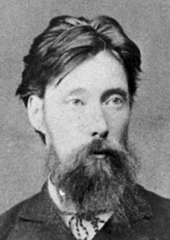 W
WAlexander Vasilievich Pribylev (1857–1936) was a Russian revolutionary, a member of the party "Narodnaya Volya", a member of the Party of Socialist Revolutionaries, a bacteriologist, a public figure.
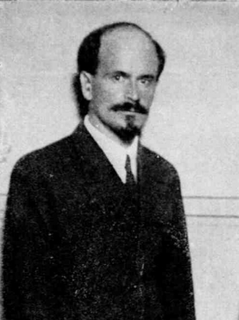 W
WVadim Viktorovich Rudnev was a Russian politician and editor. On 11 July 1917, Moscow City Duma elected him Moscow's Gorodskoy Golova.
 W
WPinhas Rutenberg was a Russian Jewish engineer, businessman, and political activist. He played an active role in two Russian revolutions, in 1905 and 1917. During World War I, he was among the founders of the Jewish Legion and of the American Jewish Congress. Later, he immigrated to Mandatory Palestine, and through his connections managed to obtain a concession for production and distribution of electric power and founded the Palestine Electric Corporation, currently the Israel Electric Corporation. A vocal and committed Zionist, Rutenberg also participated in establishing the Haganah, the main Jewish militia in pre-war Palestine, and founded Palestine Airways. He subsequently served as a President of the Jewish National Council.
 W
WBoris Viktorovich Savinkov was a Russian writer and revolutionary. As one of the leaders of the Fighting Organisation of the Socialist Revolutionary Party, he became involved in the assassinations of several high-ranking imperial officials in 1904 and 1905.
 W
WViktor Borisovich Shklovsky was a Russian and Soviet literary theorist, critic, writer, and pamphleteer. He is one of the major figures associated with Russian formalism.
 W
WMaria Skobtsova, known as Mother Maria, Saint Mary of Paris, born Elizaveta Yurievna Pilenko, Kuzmina-Karavayeva (Кузьмина-Караваева) by her first marriage, Skobtsova (Скобцова) by her second marriage, was a Russian noblewoman, poet, nun, and member of the French Resistance during World War II. She has been canonized a saint in the Eastern Orthodox Church.
 W
WPitirim Alexandrovich Sorokin was a Russian, later American, sociologist and political activist, who contributed to the social cycle theory.
 W
WNikolai Vasilyevich Tchaikovsky was a Russian revolutionary.
 W
WSergei Anatoljevich Tsion was an Imperial Russian Army captain who was one of the leaders of the Sveaborg Rebellion in 1906.
 W
WMark Veniaminovich Vishniak (1883–1977) was a Russian socialist, journalist and writer.
 W
WFeliks Vadimovich Volkhovsky was a Russian revolutionary, journalist and writer. Volkhovsky became involved in radical student politics in St Petersburg in the 1860s. In 1867, he co-founded the 'One Rouble Society' with German Lopatin; it was dedicated to propaganda and educational work among the masses. After several arrests, Volkhovsky moved to Odessa in 1873, where he organised a circle affiliated with the Circle of Tchaikovsky. One of the members of Volkhovsky's Odessa group was Andrei Zhelyabov, later one of the principal organisers of the assassination of Tsar Alexander II.
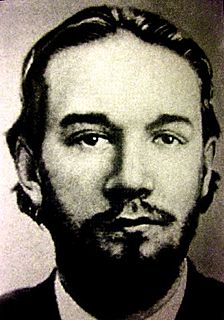 W
WVladimir Mikhailovich Zenzinov was a member of Russia's Socialist-Revolutionary Party, a participant of the First (1905), Second, and Third Russian Revolutions, and an author of a number of books.
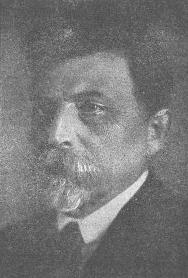 W
WChaim Zhitlowsky was a Jewish communist, philosopher, social and political thinker, writer and literary critic born in Ushachy, Vitebsk Governorate, Russian Empire.